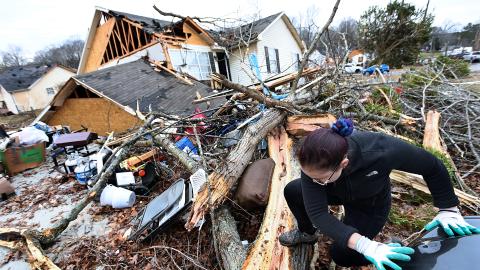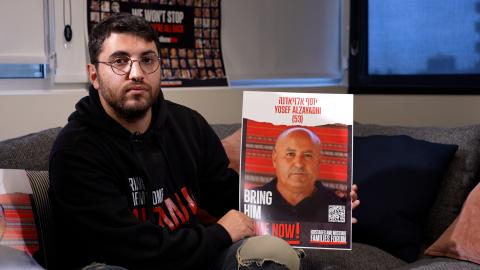
IDF Warily Watching Protesting Reservists, as Netanyahu Warns Against Refusal to Serve
JERUSALEM, Israel – Of all of the institutions in Israel affected by 7 months of public demonstrations over judicial reform, the one that worries Prime Minister Benjamin Netanyahu and Israeli Defense Forces (IDF) leaders the most is the threat from military reservists not to show up for duty.
In the leadup to Monday's Knesset vote to add restrictions to the judicial system's ability to strike down laws by parliament, military reservists gathered publicly in Tel Aviv to sign petitions saying they would refuse to serve if the law passed.
Netanyahu was released from the hospital Sunday after receiving a pacemaker implant. One of his first statements before his appearance at the Knesset for the judicial reform vote was to warn volunteer reservists that “Incitement to insubordination and insubordination itself are in opposition to democracy and the law.”
The prime minister added, “This is true in any democracy, but in our democracy, incitement to insubordination and insubordination directly endanger the security of all Israeli citizens. There can’t be a group within the army that threatens the elected government ‘if you don’t do as we desire, we’ll flip the switch on (the nation's) security.'”
IDF Chief of Staff Lt. Gen. Herzi Halevi issued a letter Sunday to all men and women in the service, which read in part, "If we are not a strong, united military, if the best don't serve in the IDF – we won't be able to exist further as a country in the region."
"We worked to stay outside of the dispute," he continued, "but in light of its intensity in Israeli society, we found ourselves inside of it, and the cohesion has been harmed. Our duty is to stop the cracks from spreading."
Halevi called the national split over judicial reform "legitimate," but cautioned, "When the disputes spread to the ranks of the IDF and create cracks in it, an infantry soldier could mistakenly think that an IAF (Israel Air Force) pilot won't help him because of this division. An IAF pilot could mistakenly think that it is possible to not prepare and maintain readiness for war, when in fact we could need him soon. These are dangerous cracks."
On Monday evening, following the vote, Netanyahu cautioned the reservists once again in his remarks to Israeli citizens: "The IDF must remain outside any political controversy. We all know that the IDF relies on dedicated reservists who love this country. Calls for refusal to serve harm the security of every citizen of the state. No government can capitulate to (the) refusal diktat and we will not give in to such (a) diktat.
He followed with an appeal. "I call on you – brother and sister reservists, leave IDF duty out of the political debate."
Many of the demonstrating reservists believe the Netanyahu coalition is leading the country toward a dictatorship by putting restrictions on the Supreme Court's ability to overturn and negate laws passed by the Knesset.
At a press conference in Herziya Saturday, a representative from a reservist group called Brothers in Arms said, “We’ve tried everything, This is where we draw the line. We pledged to serve the kingdom and not the king. We are determined, we are fighters, we love this country and we will not give up on it.”
On Tuesday's edition of The 700 Club, Attorney Jeff Ballabon from the American Center for Law and Justice explained to host Gordon Robertson what the refusal of voluntary reservists to serve – specifically volunteer pilots – means for Israel's national security,
"After their mandatory service, they come back once a week to fly, so that they're constantly in battle readiness," Ballabon said.
"And because it's not an order, they're saying, 'Well, you know what? We've been volunteering to do this – we don't like your policies, we're not going to show up anymore. You can't force us to.' That's deeply disturbing," Ballabon concluded.
Israel's military and political leaders both realize the sensitivity of the the judicial reform issue to some reservists and soldiers, and have basically allowed freedom of expression and even protest. However, refusal of the reservists to serve clearly represents a red line if they follow through with their stated intentions.
The government can discipline the volunteers for not reporting, but cannot order them to report.
***Please sign up for CBN Newsletters and download the CBN News app to ensure you keep receiving the latest news from a distinctly Christian perspective.***




